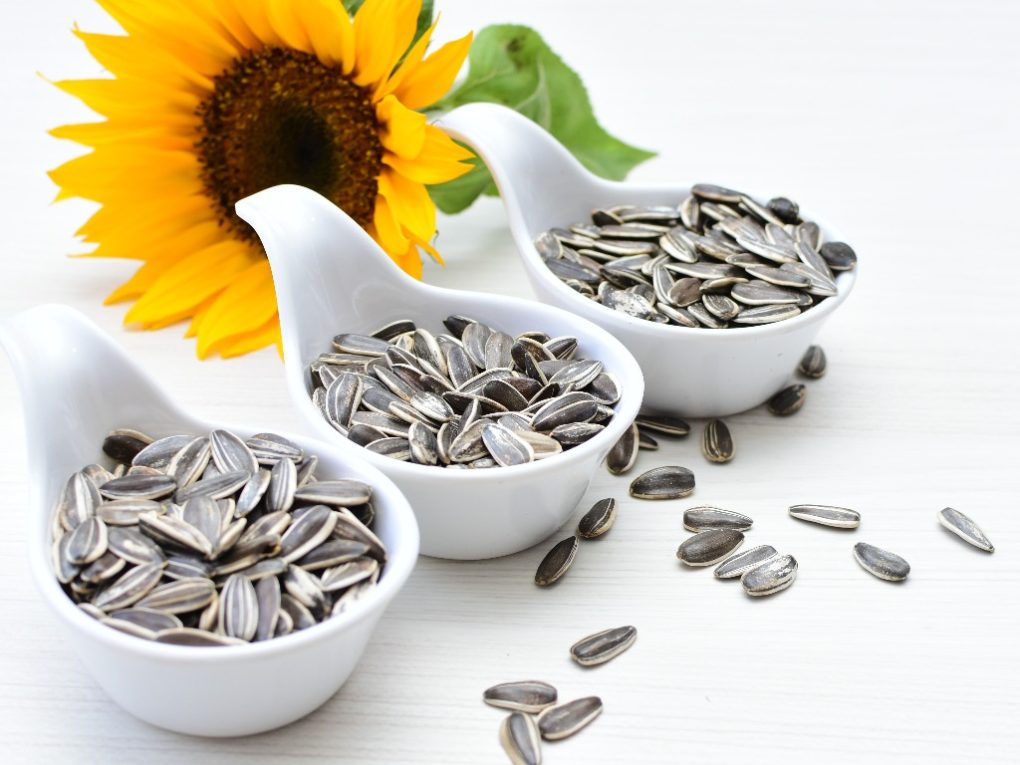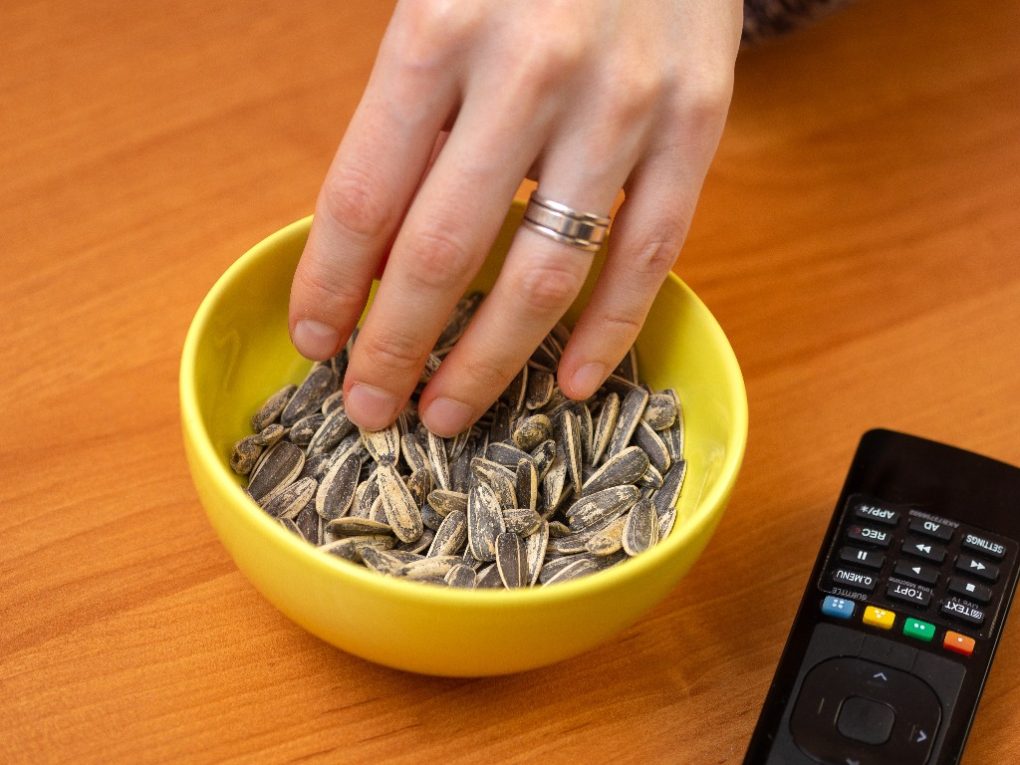Are Sunflowers Good for You: Health Benefits and Risks Explained
Yes, sunflowers are good for you. According to Healthline, sunflower seeds are a nutrient-dense food with many health benefits. They are a great source of healthy fats, protein, fiber, vitamins, and minerals. In addition, just a quarter cup of sunflower seeds provides over 80% of the recommended daily vitamin E intake, a powerful antioxidant that helps protect cells from damage. Sunflower seeds are a common snack many enjoy, but have you ever wondered whether sunflower is a fruit? The answer is yes! While the sunflower is often classified as a flower due to its bright yellow petals, it also produces a small edible fruit called achenes.

However, it’s important to note that sunflower seeds are also high in calories and fat, so it’s best to consume them in moderation. Additionally, some people may be allergic to sunflower seeds, so it’s important to be aware of any potential allergies or reactions before consuming them.
Table of Contents
Nutritional Benefits of Sunflower
Vitamins and Minerals
Sunflower seeds are packed with essential vitamins and minerals. Just a quarter cup of sunflower seeds contains over 30% of the daily recommended vitamin E intake, important for maintaining healthy skin and eyes. Sunflower seeds are also a great source of magnesium, which plays a key role in maintaining healthy bones and muscles. In addition, sunflower seeds contain various other vitamins and minerals, including vitamin B6, folate, and zinc.
Antioxidants
Antioxidants are vital for protecting the body from the damage of free radicals, which can lead to the development of chronic diseases. Sunflower seeds contain a range of antioxidants, including vitamin E and selenium. These antioxidants can help protect the body against oxidative stress and inflammation linked to various health problems.
Healthy Fats
Sunflower seeds are a reliable source of healthy fats, including monounsaturated and polyunsaturated fats. These fats can help to lower cholesterol levels and reduce the risk of heart disease. Sunflower seeds also contain omega-6 fatty acids, important for maintaining healthy skin and hair and supporting the immune system.
Health Benefits
Heart Health
Sunflower seeds are a great source of healthy fats, including monounsaturated and polyunsaturated fats. These fats can help reduce cholesterol levels and lower the risk of heart disease. Additionally, sunflower seeds are rich in vitamin E, an antioxidant that can help protect the heart from damage caused by free radicals.

Blood Sugar Control
Sunflower seeds are low in carbohydrates and fiber, making them a great snack option for people with diabetes or sugar level concerns. In addition, the fiber in sunflower seeds can slow down the absorption of sugar in the bloodstream, which can prevent spikes in blood sugar levels.
Skin Health
The vitamin E in sunflower seeds can also benefit the skin. Vitamin E is an antioxidant that can protect the skin from damage caused by free radicals, leading to premature aging. Additionally, vitamin E can help improve skin hydration and elasticity.
Anti-Inflammatory Effects
Sunflower seeds can offer anti-inflammatory benefits for those with short-term or chronic inflammation. Sunflower seeds contain compounds such as vitamin E, magnesium, and linoleic fatty acids, which have been shown to reduce inflammation in the body. Inflammation is linked to many chronic diseases, so reducing inflammation can positively impact overall health.
Potential Side Effects
Sunflower seeds are known for their numerous health benefits but can have potential side effects like any food. Therefore, it is important to know these side effects to make informed decisions about consuming sunflower seeds.
Allergies
Although sunflower seeds are not a common allergen, some people may experience allergic reactions. Symptoms may include mouth swelling, itching of the mouth, skin rashes, lesions, hay fever, and asthma. People allergic to peanuts and tree nuts can also be allergic to sunflower seeds than others. Talking to a doctor if you experience these symptoms after consuming sunflower seeds is important.
Digestive Issues
Sunflower seeds are high in fiber, which can benefit digestive health. However, consuming too many sunflower seeds can cause digestive issues. Additionally, sunflower seeds contain high phosphorus levels, which can impact kidney function if consumed excessively. Therefore, it is important to consume sunflower seeds in moderation and talk to a doctor if you experience any digestive issues after consuming them.
Tips to Incorporate Sunflower Seeds into Your Diet

- Add them to your breakfast: Sprinkle sunflower seeds on top of your cereal or yogurt in the morning. I have trouble giving my kids nutritious food, but they love this combo!
- Use them in baking: Add sunflower seeds to your homemade bread or muffin recipes for a nutty crunch.
- Make your trail mix: Combine sunflower seeds with other nuts, dried fruit, and chocolate chips for a delicious and healthy snack.
- Use them in salads: Toss sunflower seeds into your favorite salad for added texture and crunch.
- Make sunflower seed butter: Sunflower seed butter is a great alternative to peanut butter and can be used in sandwiches, smoothies, or as a dip for fruit.
- Use them as a topping: Sprinkle sunflower seeds on roasted vegetables, soups, or stir-fries for added flavor and nutrition.
- Make energy balls: Blend sunflower seeds with dates, cocoa powder, and other ingredients to make delicious and healthy energy balls.
It’s important to note that sunflower seeds are high in calories and fat, so it’s best to consume them in moderation as part of a balanced diet. Choosing unsalted sunflower seeds is important to avoid consuming too much sodium. Roasted sunflower seeds can also be high in added oils and salt, so it’s best to opt for raw or dry-roasted varieties.
